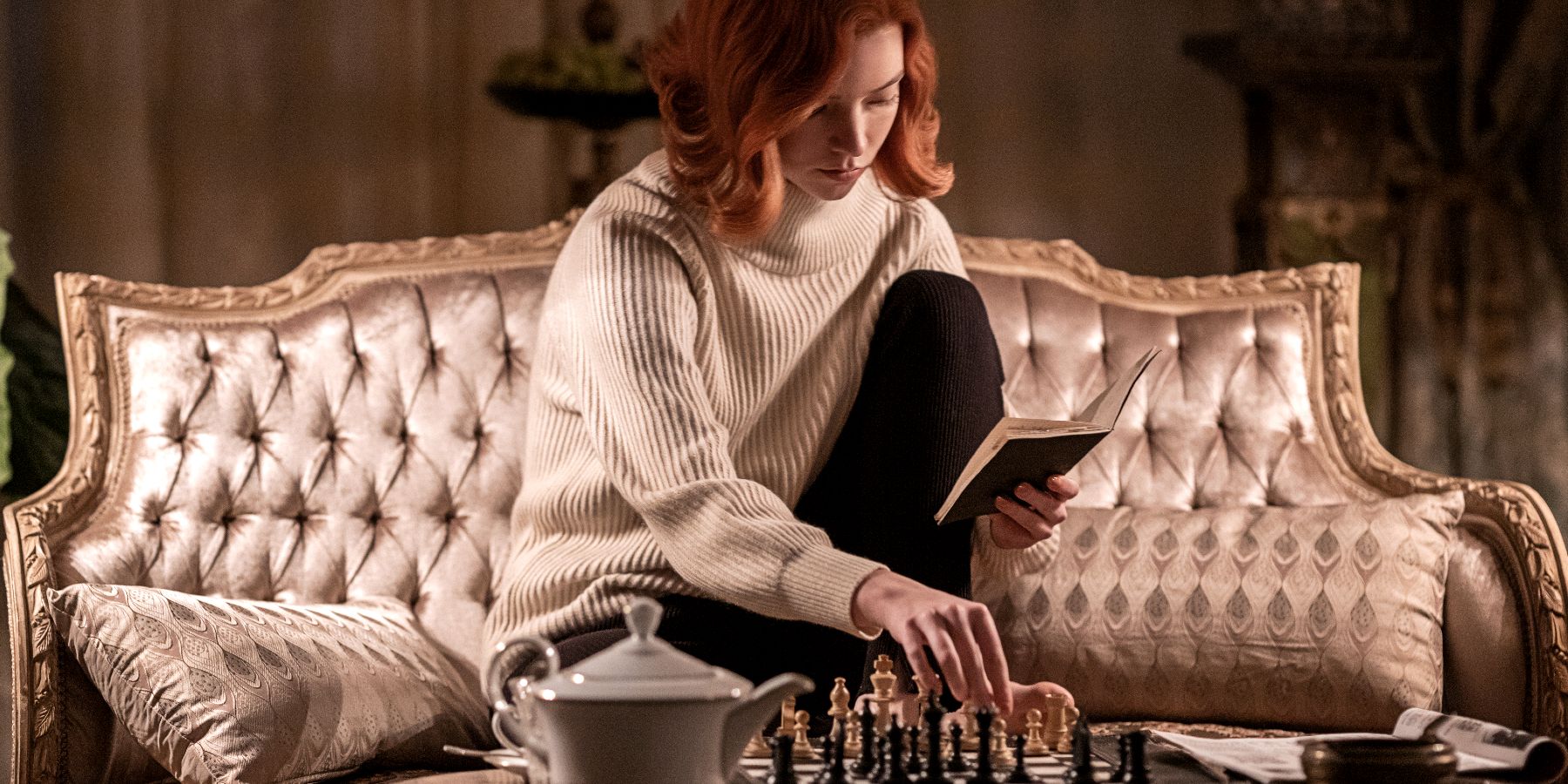Is The Queen’s Gambit Based On A True Story? Sort Of
The Queen’s Gambit follows the life of chess prodigy Beth Harmon as she moves up the ranks in the world. But is the TV series based on a true story?
You Are Reading :Is The Queens Gambit Based On A True Story Sort Of

The Queen’s Gambit isn’t a true story, but it takes inspiration from real-life people and events. The acclaimed series, which is based on the 1983 novel of the same name written by Walter Tevis, centers on a fictional female chess prodigy named Beth Harmon, who has drawn comparisons to the legendary Bobby Fischer. The story begins with eight-year-old Beth (played in her older years by Anya-Taylor Joy) sent to an orphanage following her biological mother’s death. Early in her stay, she develops a drug addiction thanks to the tranquilizers distributed to the children to stabilize their moods. Haunted by memories of her mentally ill mother, Beth finds solace playing chess with the orphanage’s janitor.
Beth’s adoptive mother, Mrs. Wheatley, an alcoholic, takes a keen interest in Beth’s chess career. She also turns a blind eye to Beth’s pill problem and even introduces Beth to drinking at a young age. With her mother’s encouragement, Beth rises quickly in the chess circuit ranks and becomes the U.S. champion by age 18. She then begins playing all over the world with her eye on the ultimate prize: beating a world-renowned Russian champion Vasily Borgov. The Queen’s Gambit shows the thin line between genius and madness, with Beth struggling to balance her personal demons and ambition. Throughout the series, Beth struggles with depression, and she’s unable and disinterested in forging lasting emotional connections with anyone. She prefers to spend her time alone in a drunken and dangerous pill-induced haze, envisioning chess matches endlessly in her mind.
Tevis admitted to the New York Times that he drew from personal experience when it came to his writing. He described how in his youth, he was given heavy drugs due to a heart condition. “That’s where Beth’s drug dependency comes from in the novel,” he said. Tevis’ work often centers around protagonists considered “loners and losers,” citing chess as a solitary game. While Tevis saw some of himself in Beth, there are also striking parallels between Beth and Bobby Fischer, who won the U.S. title at the age of 14 (four years before Beth). Fischer became a grandmaster in 1958 at 15. Fischer dominated the chess world throughout the 1960s – a timeline shared by Beth – and his preferred strategy was the King’s Gambit. Like Beth, Fischer was an aggressive player who favored attack strategies.

Fischer’s career-defining match was in 1972 when he defeated Russia’s Boris Spassky during the World Chess Championship. Beth’s match against Borgov was an invitational event, so she doesn’t walk away with a title, but her victory has more far-reaching implications as it demonstrates she’s overcoming her self-destructive behaviors. Following his match, Fischer became a celebrity, but in 1973, he went into seclusion, where he stayed for much of the remainder of his life. Fischer (who died in 2008) didn’t suffer from addiction, but according to an article in the New York Times, he was entitled, self-involved, and demanding. Many accounts of Fischer as a person paint him as eccentric at best and unbearable at worst. Unlike Beth, beating his most formidable opponent didn’t bring Fischer any peace.
Obviously, Fischer didn’t face the same challenges as Beth, who fights to earn respect as a female in a male-dominated sport. Tevis told the New York Times how much respect he had for intelligent women. Fischer wouldn’t have held Beth in high esteem. He once told Harper’s magazine that women could not be great chess players. According to an article in the Pacific Standard, researchers believe Fischer may have suffered from an undiagnosed mental illness. The Queen’s Gambit gives Beth a far happier ending than the real-life chess prodigy whose life and career served as at least one inspiration for her character.
Link Source : https://screenrant.com/queens-gambit-true-story-explained/
